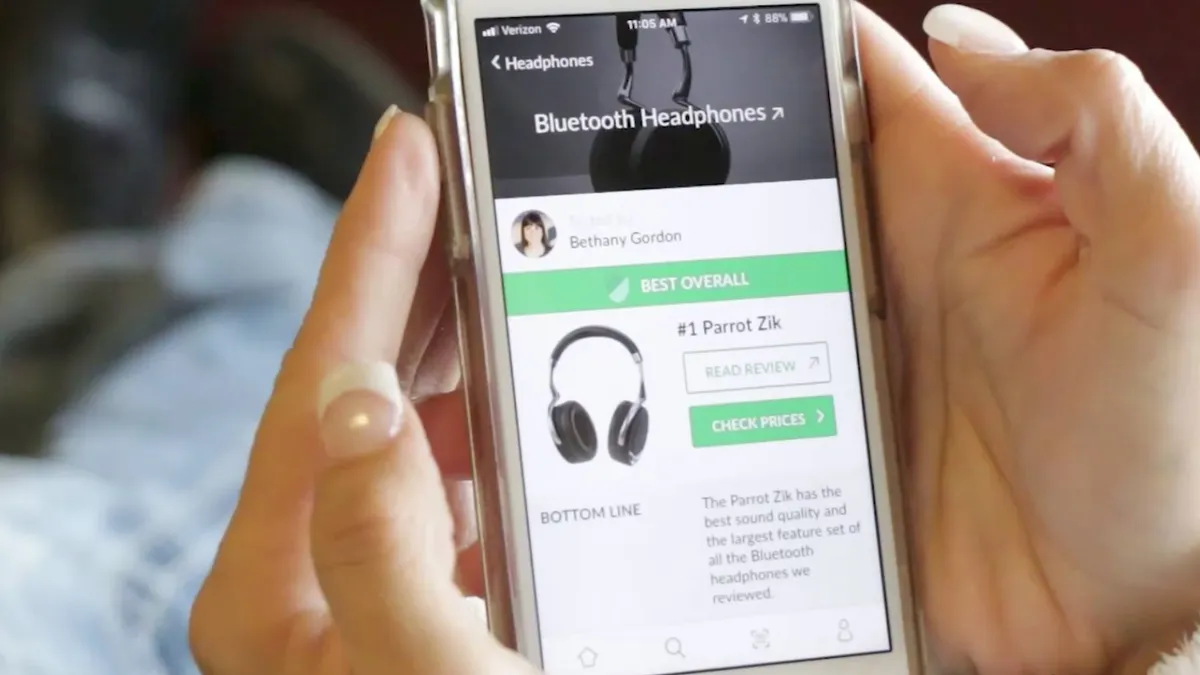Brief:
- Price-comparison app ShopSavvy this week added a price-match feature and expanded its price-matching capabilities ahead of back-to-school shopping, according to a statement. ShopSavvy users can compare prices among stores and more easily see the price-matching policies of retailers like Target, Walmart and Best Buy.
- ShopSavvy developed the feature in response to user feedback around the difficulties of price matching in stores, stemming from varying store policies, store associates' lack of knowledge and pressures to not hold up the register line.
- To use the new feature, users must enable location services for the ShopSavvy app and then scan or search for products at participating retailers. The app identifies whether a retailer offers price matching and if a product is available at another retailer for less. If a product is available for less elsewhere, shoppers can show the app, which is available on iOS and Android, to a salesperson and have the lowest price matched instantly.
Insight:
ShopSavvy's price-matching app arrives as retailers face a key challenge in the mobile age from shoppers who browse store aisles while comparing product prices on their smartphones. That has spurred retailers to adapt with more aggressive pricing strategies or value-added services that aim to improve the in-store experience for customers. The app's new features may help some retailers keep shoppers from going elsewhere to buy comparable products for less. ShopSavvy is among the apps that aim to help consumers find bargains. Groupon and RetailMeNot offer online coupons, while BensBargains and CamelCamelCamel have mobile apps to alert shoppers about deals.
ShopSavvy's new features arrive just ahead of the busy back-to-school shopping season, where parents are estimated to spend a collective $27.6 billion on back-to-school shopping this year, or an average of $510 per child, according to a recent Deloitte report. More than half (57%) of back-to-school budgets will be spent in stores, the firm's survey found, pointing to the potential usage increase for apps like ShopSavvy. An additional $5.5 billion in sales is up for grabs as 20% of parents are undecided about whether to spend online or at brick-and-mortar stores, per Deloitte.
Meanwhile, Purch, ShopSavvy's parent company, last month agreed to sell its U.S.-based business-to-consumer (B2C) business unit and all associated brands and services to Future US, a unit of U.K.-based media company Future Publishing, according to a statement. The sale includes the Purch brand along with its consumer services including Tom's Guide, Tom's Hardware, TopTenReviews, ShopSavvy, Live Science and Space.com.














